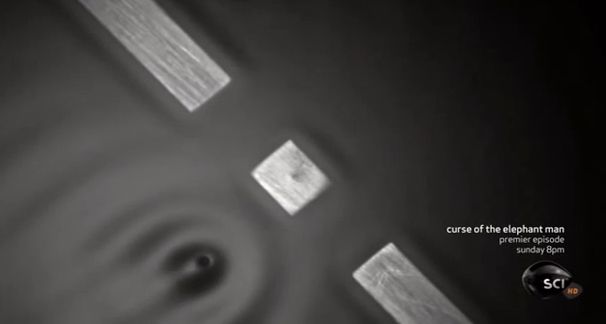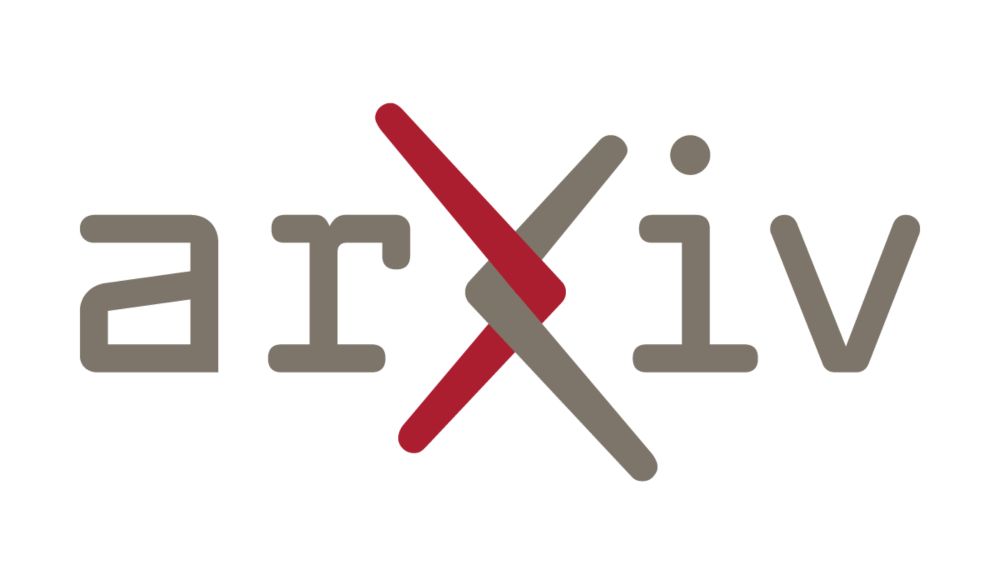Rajiv Krishnakumar
@rajivkrishnakumar.bsky.social
I like quantum algorithms ⚛ Any/all 🚹 Quantum scientist @ QuantumBasel and QC2, Univeristät Basel 🇮🇳🇨🇭 Opinions are my own
Does this mean the coin flipping guys get to publish a paper too?
(Sidenote: I am unironically a big fan of trickshot videos. The joy in their faces when they finally get it is fantastic!)
(Sidenote: I am unironically a big fan of trickshot videos. The joy in their faces when they finally get it is fantastic!)
August 5, 2025 at 7:52 AM
Does this mean the coin flipping guys get to publish a paper too?
(Sidenote: I am unironically a big fan of trickshot videos. The joy in their faces when they finally get it is fantastic!)
(Sidenote: I am unironically a big fan of trickshot videos. The joy in their faces when they finally get it is fantastic!)
I think a way to fight blog posts is to preach to non-experts to
1. Find the link to the scientific paper in the blog post
2. Upload just the paper (not blog post or any other media) into NotebookLM
3. Ask NotebookLM your questions
It's not perfect but (so far) it's pretty decent!
1. Find the link to the scientific paper in the blog post
2. Upload just the paper (not blog post or any other media) into NotebookLM
3. Ask NotebookLM your questions
It's not perfect but (so far) it's pretty decent!
July 17, 2025 at 5:27 PM
I think a way to fight blog posts is to preach to non-experts to
1. Find the link to the scientific paper in the blog post
2. Upload just the paper (not blog post or any other media) into NotebookLM
3. Ask NotebookLM your questions
It's not perfect but (so far) it's pretty decent!
1. Find the link to the scientific paper in the blog post
2. Upload just the paper (not blog post or any other media) into NotebookLM
3. Ask NotebookLM your questions
It's not perfect but (so far) it's pretty decent!
Super interesting! Are there/will there be any talks on this available on youtube?
May 16, 2025 at 11:23 AM
Super interesting! Are there/will there be any talks on this available on youtube?
Nice one 🤣🤣 alternatively you need to search through 3 items
May 8, 2025 at 7:38 PM
Nice one 🤣🤣 alternatively you need to search through 3 items
Thanks Nick, appreciate the shout 🙂 we're hoping it can entice more people into digging deeper into how to move forward in understanding which (parts of) problems in healthcare/lifesciences quantum algorithms could be have a potential to help out in!
May 2, 2025 at 5:59 AM
Thanks Nick, appreciate the shout 🙂 we're hoping it can entice more people into digging deeper into how to move forward in understanding which (parts of) problems in healthcare/lifesciences quantum algorithms could be have a potential to help out in!
Looking forward to it coming out!
April 30, 2025 at 10:54 AM
Looking forward to it coming out!
It's a word play on "hope"
April 25, 2025 at 4:14 AM
It's a word play on "hope"
So your conclusion is that "this suggests that the firewall paradox may be a symptom of the same fundamental issue that leads to the extended Wigner's friend paradox" is bullshit? Or am I misunderstanding?
April 10, 2025 at 6:44 AM
So your conclusion is that "this suggests that the firewall paradox may be a symptom of the same fundamental issue that leads to the extended Wigner's friend paradox" is bullshit? Or am I misunderstanding?
Indeed! I think that's a pretty OG one en.m.wikipedia.org/wiki/Pilot_w...

Pilot wave theory - Wikipedia
en.m.wikipedia.org
March 30, 2025 at 1:40 PM
Indeed! I think that's a pretty OG one en.m.wikipedia.org/wiki/Pilot_w...
Oh I didn't know this was an additional feed I could add, this is really neat!
March 29, 2025 at 10:03 PM
Oh I didn't know this was an additional feed I could add, this is really neat!
It's similar on my timeline (not with Tesla specifically but a lot of Trump related posts). My solution is to just stick to the "Following" tab and ignore the "Discover" tab. Unfortunately I only discover new accounts when people I know repost them, so exploration is slow but I'm OK with it for now
March 29, 2025 at 5:52 PM
It's similar on my timeline (not with Tesla specifically but a lot of Trump related posts). My solution is to just stick to the "Following" tab and ignore the "Discover" tab. Unfortunately I only discover new accounts when people I know repost them, so exploration is slow but I'm OK with it for now
Genuine question: what makes this paper bullshit? You often times point to a quote or give like a two-word context so happy to get that from you this time as well (I have no opinion or stake in this paper, just curious)
March 27, 2025 at 2:51 PM
Genuine question: what makes this paper bullshit? You often times point to a quote or give like a two-word context so happy to get that from you this time as well (I have no opinion or stake in this paper, just curious)
(8/8) Model complexity reduced by a factor of 5, making it more efficient and scalable.
Read more arxiv.org/abs/2503.10510 & share your thoughts!
We welcome feedback, questions, and collaborations. Stay tuned for more insights from our work at QuantumBasel!
Read more arxiv.org/abs/2503.10510 & share your thoughts!
We welcome feedback, questions, and collaborations. Stay tuned for more insights from our work at QuantumBasel!

Extreme Learning Machines for Attention-based Multiple Instance Learning in Whole-Slide Image Classification
Whole-slide image classification represents a key challenge in computational pathology and medicine. Attention-based multiple instance learning (MIL) has emerged as an effective approach for this prob...
arxiv.org
March 20, 2025 at 7:43 PM
(8/8) Model complexity reduced by a factor of 5, making it more efficient and scalable.
Read more arxiv.org/abs/2503.10510 & share your thoughts!
We welcome feedback, questions, and collaborations. Stay tuned for more insights from our work at QuantumBasel!
Read more arxiv.org/abs/2503.10510 & share your thoughts!
We welcome feedback, questions, and collaborations. Stay tuned for more insights from our work at QuantumBasel!
(7/8) 2. We apply parameter freezing, inspired by extreme learning machines, to improve generalization and reduce model complexity.
📊 Essential Outcomes:
AUC increased by over 10%, demonstrating superior detection accuracy.
📊 Essential Outcomes:
AUC increased by over 10%, demonstrating superior detection accuracy.
March 20, 2025 at 7:43 PM
(7/8) 2. We apply parameter freezing, inspired by extreme learning machines, to improve generalization and reduce model complexity.
📊 Essential Outcomes:
AUC increased by over 10%, demonstrating superior detection accuracy.
📊 Essential Outcomes:
AUC increased by over 10%, demonstrating superior detection accuracy.
(6/8) each labeled as containing no CRCs (0) or at least one CRC (1).
How have we improve deep MIL models?
1. Instead of using raw feature vectors, we aggregate high-dimensional hidden layer outputs—enhancing representation quality.
How have we improve deep MIL models?
1. Instead of using raw feature vectors, we aggregate high-dimensional hidden layer outputs—enhancing representation quality.
March 20, 2025 at 7:43 PM
(6/8) each labeled as containing no CRCs (0) or at least one CRC (1).
How have we improve deep MIL models?
1. Instead of using raw feature vectors, we aggregate high-dimensional hidden layer outputs—enhancing representation quality.
How have we improve deep MIL models?
1. Instead of using raw feature vectors, we aggregate high-dimensional hidden layer outputs—enhancing representation quality.
(5/8) Our work looked at detecting a specific CRC type (erythroblasts), which is linked to inflammation, hypoxia, cancer infiltration, and increased mortality risk.
We used individual blood cell images from different patients to create whole slide images (WSIs) of blood —
We used individual blood cell images from different patients to create whole slide images (WSIs) of blood —
March 20, 2025 at 7:42 PM
(5/8) Our work looked at detecting a specific CRC type (erythroblasts), which is linked to inflammation, hypoxia, cancer infiltration, and increased mortality risk.
We used individual blood cell images from different patients to create whole slide images (WSIs) of blood —
We used individual blood cell images from different patients to create whole slide images (WSIs) of blood —
(4/8) 🔍 Understanding Our Approach
What is the challenge?
In multiple instance learning (MIL), individual data points (e.g., single cells) often lack labels, but “bag-level” labels (e.g., entire blood samples) are more accessible.
What is the challenge?
In multiple instance learning (MIL), individual data points (e.g., single cells) often lack labels, but “bag-level” labels (e.g., entire blood samples) are more accessible.
March 20, 2025 at 7:42 PM
(4/8) 🔍 Understanding Our Approach
What is the challenge?
In multiple instance learning (MIL), individual data points (e.g., single cells) often lack labels, but “bag-level” labels (e.g., entire blood samples) are more accessible.
What is the challenge?
In multiple instance learning (MIL), individual data points (e.g., single cells) often lack labels, but “bag-level” labels (e.g., entire blood samples) are more accessible.
(3/8) - More efficiency: We reduced the number of trained parameters by a factor of 5.
- Future potential: We outline a possible pathway for leveraging quantum algorithms to further enhance MIL-based AI models.
- Future potential: We outline a possible pathway for leveraging quantum algorithms to further enhance MIL-based AI models.
March 20, 2025 at 7:42 PM
(3/8) - More efficiency: We reduced the number of trained parameters by a factor of 5.
- Future potential: We outline a possible pathway for leveraging quantum algorithms to further enhance MIL-based AI models.
- Future potential: We outline a possible pathway for leveraging quantum algorithms to further enhance MIL-based AI models.
(2/8) for the early detection of circulating rare cells (CRCs) in blood—key indicators of various biological and pathological conditions, including various cancer diseases.
Key results:
- Performance boost: Across multiple metrics - including AUC by over 10%.
Key results:
- Performance boost: Across multiple metrics - including AUC by over 10%.
March 20, 2025 at 7:42 PM
(2/8) for the early detection of circulating rare cells (CRCs) in blood—key indicators of various biological and pathological conditions, including various cancer diseases.
Key results:
- Performance boost: Across multiple metrics - including AUC by over 10%.
Key results:
- Performance boost: Across multiple metrics - including AUC by over 10%.


